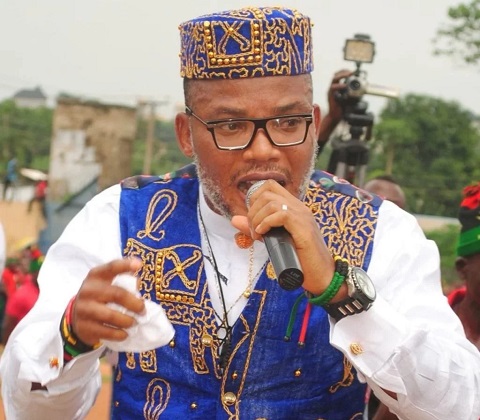Nnamdi Kanu, the leader of the Indigenous People of Biafra (IPOB) has called on the federal government to release him.
This is as he slammed his continued detention despite a court ordering his release.
Kanu stated this while reacting to the cancellation of the hearing of his case at the Supreme Court scheduled for September 14.
The IPOB leader approached the apex court to determine the legitimacy of his continued detention after the Appeal Court, Abuja, discharged and acquitted him.
Speaking on Nnamdi Kanu’s behalf after he visited the IPOB leader, Ifeanyi Ejiofor said, “Why is the federal government of a country of over 200 million people afraid of one man’s case?
“A federal government which invaded Mazi Nnamdi Kanu’s house in Afaraukwu Ibeku and killed over 28 innocent civilians; a federal government that criminally abducted Mazi Nnamdi Kanu from Kenya and extraordinarily renditioned him to Nigeria. What exactly are they afraid of?”
Ejiofor claimed that the federal government’s appeal against the judgment of the Court of Appeal, which discharged him and prohibited his further trial and detention, would not be heard because the FG intends to illegally detain him indefinitely.
He added, “There is presently no charge pending before any court against Mazi Nnamdi Kanu. Yet, he is still being detained based on an unprecedented Order of Stay of Execution, in total disregard to his constitutionally guaranteed right to personal liberty.
“Where in the world has it ever happened that the court discharged a person, ordered for his unconditional release, prohibited his further detention and trial, yet, that person is still being held in solitary confinement?
“Kanu is only exercising his right to self-determination, a globally recognised right, which is also provided for in the Nigerian Constitution and other international conventions and treaties which Nigeria is signatory to.
“Whether the appeal is heard today, or not, the truth remains unchanging – Mazi Nnamdi Kanu has not committed any offence known to law; if he had, FG would not be afraid of prosecuting their own case.”

